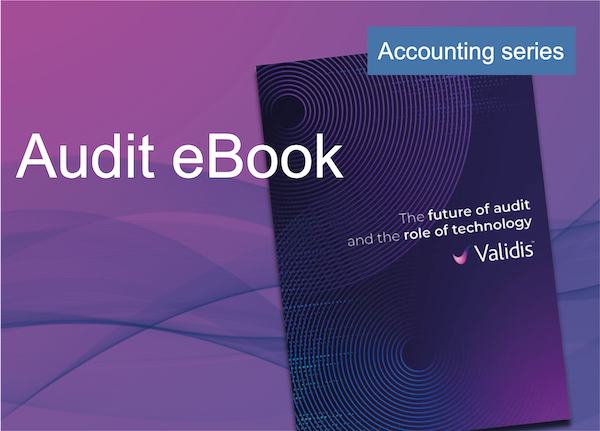91.6% of the United States’ Fortune 1000 companies are increasing their investment in big data and AI because they believe that technology will help them stay competitive. And whilst there’s a temptation to think that’s fair enough for global brands like Wal-Mart and Exxon Mobil, the mood music is actually very similar for ambitious businesses of all sizes, on both sides of the Atlantic. Indeed, accountancy group Moore UK conducted a recent survey of owner-managed businesses in which 90% of respondents stated that investment in digital transformation would be part of their strategy for the next two years.
There’s no doubt the business community is continuing to embrace technology in a post-Covid world, responding to a seismic shift in customer behaviour. Customers are increasingly expecting companies to be digital across the value chain.
Are accountancy firms keeping up? Are they investing in technology with the same commitment as their clients?
In another article I wrote that accountancy firms across the globe were beginning to shake off the shackles of a “same as last year” approach to business and that the Big Four firms, along with perhaps 400-500 of the up and coming firms snapping at their heels, are forging new partnerships with data technology and AI expertise.
So far, so good, but what about the smaller audit firms, supporting stressed and challenged SMEs? Sage research has some encouraging and some rather dispiriting results. They cite that whilst 94% of accountants believe automation can help with business tasks, only 45% reported that they intend to automate repetitive, time-consuming tasks. It’s only a single survey, but it does resonate with a sense that there remains significant scope for the audit community to build in a whole new raft of efficiencies, as well as securing valuable data resources and transformative insights.
Accountants know only too well that in many firms there’s a whole heft of manual effort required to complete the audit process, much of it being handled by highly qualified employees.
It’s laborious, it’s boring and chasing down information is no-one’s idea of a fulfilling morning at the office – whether you’re the auditor or the client.
Validis in numbers
⏰ 60% reduction of time in PBC tasks
🙌 7.3 hours saved for the client
⚙️ 1 simple integration
👩💻 90% utilisation in weeks
A digitised audit can transform the process, allowing an auditor to access and standardise their clients’ financial information through a simple interface or intelligent API. For example Validis saves 60% of time in PBC tasks. We can’t speak for the industry as a whole but our software has also been demonstrated to save the client an average of 7.3 hours, almost a full day’s work. All this is good news both for the accountancy firm and for the client. By slashing the painful pinch points of manual data collection and verification, the relationship between auditor and client is enhanced and time is freed up to use accessible and timely financial data, not only to complete the audit but to provide financial insights and business advice.
SMEs are already increasingly using digital platforms to manage their accounts. In the US nearly two thirds of small businesses use accounting software and when they report to auditors, they export and send the data, often attached in an email. With this digital infrastructure already in place, it is a very small step indeed to create a bridge between the client’s and the auditor’s infrastructure and allow the data to flow on-demand. And once the data starts flowing, auditors can standardise the various formats at the click of a button and auto-target datasets for analysis and insights.
If the Sage research is an accurate reflection of the audit community, and I believe it is, SME clients need to see more than 45% of accountancy firms planning to automate manual processes. And if audit firms want to be agile, to capitalise on the technology uptake during Covid, benefit from cost efficiencies and support clients towards business growth, there are opportunities to be seized.
There’s reason to be optimistic
In an interview with one of our clients, Liam Te-Wierik, Partner and Head of Data Assurance, Grant Thornton, he told us there’s every reason that audit firms can make an easy transition to technology, if they put their minds to it. He said:
“It was interesting during the pandemic how quickly technology tools were picked up. Change that used to take six to 12 months to really embed, was up at 90% utilisation in a matter of weeks. That’s the kind of mindset we need to embrace as a profession and find the ways to emulate that again in the future without the external pressure of a pandemic.”
Related insights

Blog post
White paper: The future of audit and the role of technology
In recent years, the accounting profession has seen an accelerated pace of transformation. Technology has been embraced, underpinned by a vision to provide a better, faster and more efficient service and to deliver insights to clients which can help them radically improve their businesses.
2 min read
Blog post
The accounting profession is breaking up with “Sally”
Same As Last Year) has been a much loved friend of accounting firms the world over for the last 100 years. It’s been a familiar, ever so comfortable way of doing business.
6 min read
